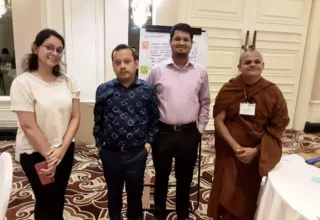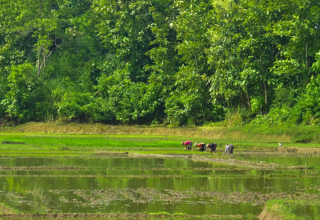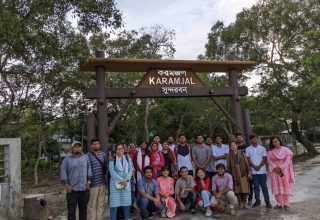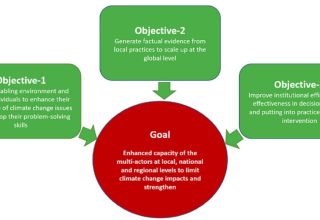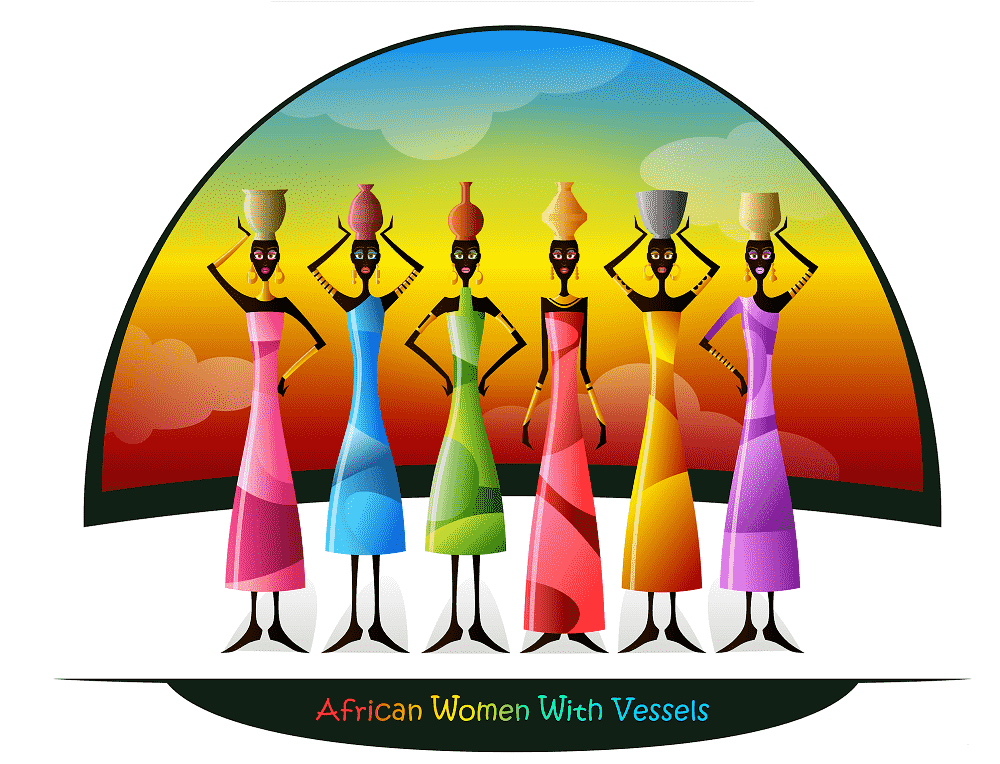
International Women’s Day 2021 was celebrated with the theme of ‘Women in Leadership: Achieving an Equal Future in a Covid-19 World”. In line with this theme, the March 2021 issue of Climate Tribune not only celebrated women leadership in and the women champions of climate change, but also exclusively featured articles by women contributors only.
The articles in the issue drove home the message that women are one of the groups hardest hit by climate change and highlighted their feats in climate change action which from an adversarial position is beyond impressive. It also accentuated that women participation and leadership need to be scaled up even more to bring transformational change to climate change action.
Articles highlighted struggles and triumphs of women as local champions – such as Mastura Parvin, Unit Leader of Cyclone Preparedness Program (CPP) in Satkhira; Lipika Rani Boiragi, Association for Social Development and Distressed Welfare at Dacope in Khulna; Afroza Begum Alpona, the Vice Chairman of Union Parishad and member of Disaster Management Committee from Kurigram.
They also illustrated the influence of women as national climate activists – such as Jannatul Mawa, Youth CSO leader from BINDU Nari Unnayan Shongothon in Satkhira – and impact of global women activists – like Greta Thunberg – on encouraging more participation and engagement towards the climate movement particularly from the youths and women.
Gender dimensions of Water and Sanitation and Hygiene (WASH) and migration issues were also explored along with the role of women in locally-led adaptation (LLA) in the Issue. That transformation can only come from collaborative efforts and climate services that are gender responsive as echoed by the articles. Climate services and adaptation technologies should be gender responsive and that can be achieved through equity and social inclusion.
For this to happen, adaptation should be viewed not from the lens of measuring climate change impacts but rather from the perspective of climate vulnerability. Only when adaptation is viewed as a bottom-to-top process and it addresses the inequalities that have created the climate vulnerabilities in the first place, the gender dimensions of climate change impacts will be addressed.
Transformational change is also the most effective when they are addressed through bottom-up approaches as illustrated in the issue through stories like that of Anita, a true climate champion. Anita is the poster child of the rural women who are the more climate-vulnerable group and face greater health risks in a household from the WASH issues arising from climate change. Anita is also an inspiration for other rural women on how empowerment can be achieved through gaining knowledge and building skills to be more climate adaptable.
It should be acknowledged that women like Anita are able to achieve successes because of institutional support which helps create an enabling environment for women empowerment in triumphing against climate change. The March Issue highlighted different initiatives and projects by organizations like UN Women, ActionAid, WaterAid, ICCCAD and other local NGOs that have helped capacitate rural women in overcoming climate vulnerabilities and achieving resilience.
The importance of women participation and leadership in climate change action was one of the primary messages resonating through the articles of the March Issue of Climate Tribune. In fact, the role of women in addressing climate change induced issues should be celebrated because their contributions are often neglected, as highlighted in an article which cited stories of women as change-makers in water and migration issues.
The challenges addressed by the articles in the March Issue for achieving gender equality in climate action include climate services and projects led by international entities, which address adaptation at different levels, but struggle to reach the last mile and integrate the voices of underrepresented groups like women.
In fact, many of the articles emphasized the importance of the climate vulnerable groups including that of women having their voices heard. Stories of the local women exemplify this problem of how they have to struggle to have their voices and opinions heard in their own households, let alone the community. This challenge demonstrates the importance of locally-led adaptation and transformational change, which need to begin at households and then at communities and so on and so forth. That is why local efforts in climate adaptation will be most integral in achieving successes.
Going back to the theme of Women’s Day for the year 2021, achieving an equal future can only come from women leadership. Because women are among the most climate vulnerable groups, having them as leaders will help transform marginalization into empowerment.
Interestingly, the theme for the upcoming Woman’s Day for 2022 has been declared as “Gender Equality Today for A Sustainable Tomorrow”. This theme recognizes the contribution of women across the world, who are leading the charge on climate change adaptation, mitigation, and response to build a more sustainable future for all. This takes us back to the message about the importance of having the voices of the women being heard. Again, that can only be accomplished through first acknowledging and then celebrating their contributions.
Originally this article was published on February 14, 2022 at Dhaka Tribune.
Towrin Zaman works as Research Associate at the International Center for Climate Change and Development (ICCCAD)



